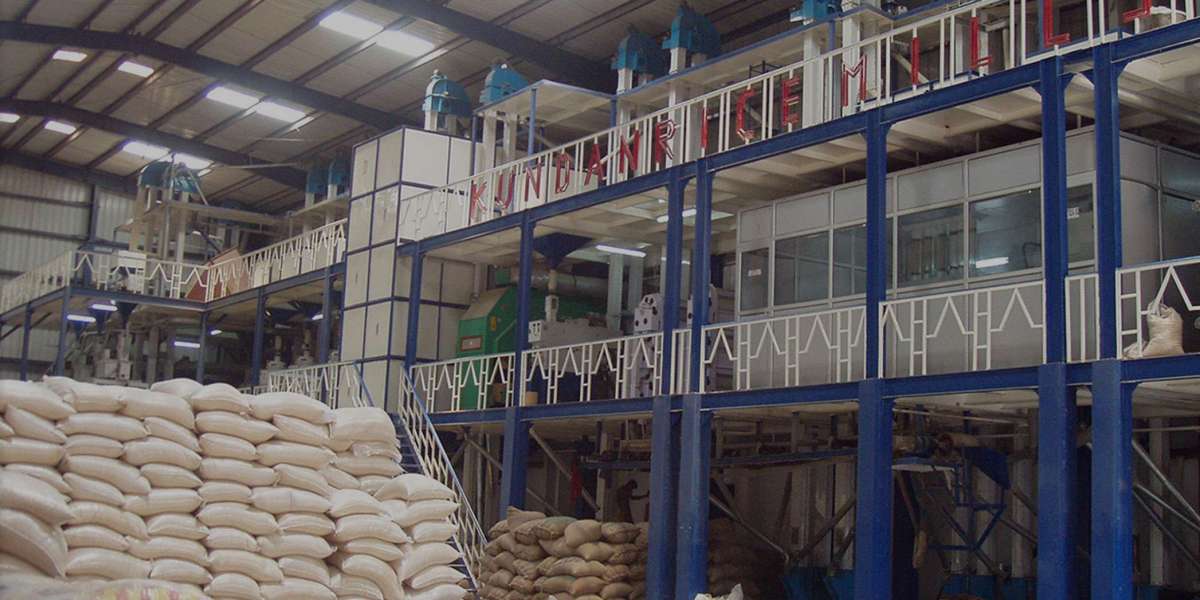India is globally recognized for its Basmati rice, a premium long-grain rice variety known for its aromatic fragrance, exquisite flavor, and superior quality. The country's Basmati rice industry is vast and intricate, with numerous manufacturers playing pivotal roles in cultivating, processing, and distributing this prized rice. This comprehensive article delves into the landscape of Basmati rice manufacturers in India, highlighting their significance, processes, challenges, and future prospects.
Introduction to Basmati Rice
What Makes Basmati Rice Unique?
Basmati rice is characterized by its long, slender grains, aromatic scent, and delightful taste. Originating from the Indian subcontinent, it is primarily grown in the northern states of India. The word "Basmati" means "fragrant" in Hindi, reflecting the rice's distinctive aroma. When cooked, Basmati rice grains become fluffy and do not stick together, making it a favorite for various culinary dishes like Biryani and Pulao.
Varieties of Basmati Rice
Several varieties of Basmati rice are cultivated in India, each with unique attributes:
Traditional Basmati: The original variety known for its strong aroma and long grains.
Pusa Basmati: A hybrid developed to enhance yield and resistance to diseases.
1121 Basmati: Famous for its extra-long grains and high export demand.
1509 Basmati: A newer hybrid variety known for its high yield and shorter maturity period.
The Role of Basmati Rice Manufacturers
Economic Contribution
Basmati rice manufacturers significantly contribute to India's economy. The industry supports millions of farmers and laborers and brings substantial foreign exchange through exports. Countries like Saudi Arabia, Iran, the UAE, the USA, and the UK are major importers of Indian Basmati rice.
Quality Assurance
Manufacturers ensure that Basmati rice meets stringent quality standards. They employ advanced techniques and machinery to maintain the rice's purity, aroma, and grain length, ensuring it meets both domestic and international standards.
Innovation and Sustainability
Manufacturers are increasingly adopting innovative and sustainable practices to enhance productivity and environmental stewardship. This includes precision farming, integrated pest management, and sustainable water usage practices.
Top Basmati Rice Manufacturers in India
KRBL Limited
KRBL Limited is a leader in the Basmati rice industry, known for its premium quality rice under the India Gate brand. Established in 1889, KRBL combines traditional practices with modern technology to produce top-notch Basmati rice. The company has a significant presence in both domestic and international markets.
LT Foods Limited
LT Foods Limited, with its flagship brand Daawat, is a prominent name in the Basmati rice sector. The company emphasizes sustainable farming practices and innovation in rice processing. LT Foods has a strong global presence, exporting to over 60 countries.
Kohinoor Foods Limited
Kohinoor Foods Limited is renowned for its high-quality Basmati rice, marketed under the Kohinoor brand. The company has a robust supply chain and focuses on maintaining high standards of quality assurance. Kohinoor Foods caters to diverse consumer preferences with its wide range of Basmati rice products.
Amira Nature Foods Ltd
Amira Nature Foods Ltd is a well-known player in the Basmati rice market. The company exports Basmati rice to numerous countries under the Amira brand, known for its premium quality and sustainability initiatives.
Lal Qilla
Lal Qilla is a leading brand in the Basmati rice industry, offering a variety of high-quality rice products. The brand has a significant presence in both domestic and international markets and is known for its commitment to quality and innovation.
The Basmati Rice Manufacturing Process
Cultivation
Basmati rice cultivation primarily occurs in the northern states of India, such as Punjab, Haryana, and Uttar Pradesh. The unique climatic conditions and fertile soil in these regions are ideal for growing Basmati rice. Farmers use a combination of traditional and modern farming techniques to ensure the best yield and quality.
Harvesting
Harvesting Basmati rice involves cutting the mature rice plants, which are then threshed to separate the grains from the stalks. This process is followed by drying the grains to reduce their moisture content.
Processing
Processing Basmati rice includes several stages to ensure it meets the desired quality standards:
Cleaning: Removing impurities such as stones, husks, and other foreign materials.
Hulling: Removing the outer husk to produce brown rice.
Milling: Further milling the brown rice to remove the bran layer, resulting in white rice.
Polishing: Enhancing the appearance and texture of the rice grains.
Quality Control
Quality control is a critical aspect of the manufacturing process. Reputed manufacturers employ rigorous quality checks at various stages of processing to ensure the rice meets international standards. These checks include testing for grain length, aroma, moisture content, and purity.
Packaging and Distribution
Once processed and quality-checked, Basmati rice is packaged in various sizes and types of packaging, such as plastic bags, jute bags, and vacuum packs. The rice is then distributed to domestic markets and exported to international destinations. Efficient logistics and transportation systems ensure timely delivery and maintain the quality of the rice.
Challenges Faced by Basmati Rice Manufacturers
Climate Change
Climate change poses a significant challenge to Basmati rice cultivation. Erratic weather patterns, including unseasonal rains and temperature fluctuations, can affect the yield and quality of the rice. Manufacturers and farmers need to adopt climate-resilient practices to mitigate these impacts.
Pest and Disease Management
Pests and diseases can adversely affect Basmati rice crops, leading to lower yields and compromised quality. Effective pest and disease management practices, including the use of resistant varieties and integrated pest management, are essential to ensure a healthy crop.
Regulatory Compliance
Adhering to regulatory standards is crucial for Basmati rice manufacturers, especially those exporting to international markets. Compliance with food safety standards, packaging regulations, and import requirements can be complex and demanding.
Future Prospects of Basmati Rice Manufacturers in India
Technological Advancements
Technological advancements in agriculture and processing are set to revolutionize the Basmati rice industry. Precision farming, use of drones for monitoring crop health, and automation in processing can enhance productivity and quality. Manufacturers investing in technology are likely to gain a competitive edge.
Sustainability Initiatives
Sustainability is becoming increasingly important in the Basmati rice industry. Manufacturers are adopting sustainable farming practices, such as water-efficient irrigation, organic farming, and reducing the carbon footprint of their operations. These initiatives not only benefit the environment but also appeal to eco-conscious consumers.
Expansion into New Markets
With the global demand for Basmati rice on the rise, Indian manufacturers have significant opportunities to expand into new markets. By meeting international quality standards and leveraging effective marketing strategies, manufacturers can tap into emerging markets and increase their export revenues.
Brand Building
Building strong brands is essential for Basmati rice manufacturers to differentiate themselves in the market. Manufacturers focusing on brand building through quality assurance, customer engagement, and effective communication are likely to achieve long-term success.
Conclusion
Basmati rice manufacturers in India are at the heart of the country's agricultural and economic landscape. They ensure the availability of high-quality Basmati rice for both domestic and international consumers. While the industry faces several challenges, the future holds promising prospects with technological advancements, sustainability initiatives, and expansion into new markets. By addressing these challenges and leveraging opportunities, Basmati rice manufacturers in India can continue to thrive and contribute significantly to the country's growth.







